NORMAN J. WAGNER
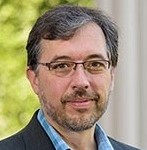 Director of Center for Neutron Science
Director of Center for Neutron Science
Unidel Robert L. Pigford Chair in Chemical & Biomolecular Engineering
Affiliated Professor in Physics & Astronomy
Joint Professor, Biomedcial Engineering, and Biomechanics & Movement Science (BIOMS Program)
Office: 227 Colburn Laboratory (CLB)
Phone: (302) 831-8079
Email: wagnernj@udel.edu
Wagner Faculty Page
Wagner Short Bio
Research Interests:
Colloid and polymer science, rheology and electrorheology, complex fluids, molecular thermodynamics, transport phenomena, molecular simulation. The interesting and technologically useful properties of modern, high performance materials are a direct result of nanoscale and/or molecular control of their underlying microstructure. Intelligent materials processing strategies control this microstructure to achieve a desired molecular and often, supramolecular structure to meet specific product performance criteria. Thus, our research is focused on developing a fundamental understanding of the dynamical behavior of materials during processing, which can be used to predict the effects of processing on material microstructure and hence, final product performance. This research has broad application and is supported by numerous international industrial concerns as well as by the National Science Foundation. Much of the research is collaborative with investigators and institutions from around the world.
ERIC BLOCH
 Assistant Professor, Department of Chemistry and Biochemistry
Assistant Professor, Department of Chemistry and Biochemistry
Office: 237 Brown Lab (BRL)
Phone: (302) 831-4804
Email: edb@udel.edu
Bloch Faculty Page
Research Interests:
Research in the Bloch group involves the synthesis and characterization of porous materials as novel adsorbents and catalysts. In order to address problems with the storage and/or activation of natural gas we are targeting the synthesis of metal-organic polyhedra based solids and liquids. In the case of the former, the modular synthesis of discrete clusters allows for precise tuning of pore size and geometry to optimize solid-gas interactions. Towards porous liquids, both neutral and charged polyhedra bearing various surface ligand functional groups are being prepared as a means to tune melting point, solubility, and gas uptake in these unique materials. In addition to a host of spectroscopic techniques, our lab utilizes single-crystal and powder X-ray and neutron diffraction, small angle scattering, and inelastic neutron scattering.
CRAIG BROWN
 National Institute of Standards and Technology (NIST)
National Institute of Standards and Technology (NIST)
Chemical & Biomolecular Engineering Affiliated Faculty
Phone: (301) 975-5134
Email: craig.brown@nist.gov
PAUL BUTLER
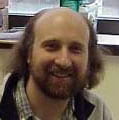 Chemist, National Institute of Standards and Technology (NIST)
Chemist, National Institute of Standards and Technology (NIST)
Chemical & Biomolecular Engineering Affiliated Faculty
Phone: (301) 975-2028
Email: paul.butler@nist.gov
THOMAS H. EPPS, III
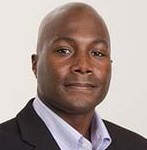 Allan & Myra Ferguson Distinguished Chair of Chemical & Biomolecular Engineering
Allan & Myra Ferguson Distinguished Chair of Chemical & Biomolecular Engineering
Director, Center for Research in Soft matter & Polymers (CRiSP), and Center for Hybrid, Active, & Responsive Materials (CHARM)
Joint Professor, Materials Science & Engineering
Affiliated Professor, Biomedical Engineering
Office: 232 Colburn Laboratory (CLB)
Phone: (302) 831-0215
Email: thepps@udel.edu
Epps Faculty Page
Research Interests:
The primary focus of the Epps laboratory lies in designing, building, and characterizing new polymeric materials exhibiting molecular level self-assembly. Several applications for block copolymers and polymer blends under investigation in our group include: battery and fuel cell membranes, organic photovoltaics, analytical separations membranes, nanoscale containers and scaffolds for targeted drug delivery, precursors to electronic arrays, and surface responsive materials. We manipulate polymer internal and external interfacial characteristics in bulk and thin film environments to influence the ordering and stability of polymer structures. Assembly processes in our materials are explored with a comprehensive array of reciprocal space (small and wide-angle x-ray and neutron scattering), real space (optical, scanning probe, and electron microscopy), mechanical (dynamic mechanical analysis), and spectroscopic (x-ray photoelectron spectroscopy, near-edge x-ray absorption fine structure, and infrared spectroscopy) techniques. Researchers in the group gain experience in chemistry, chemical engineering, materials science, and biology.
ERIC M. FURST
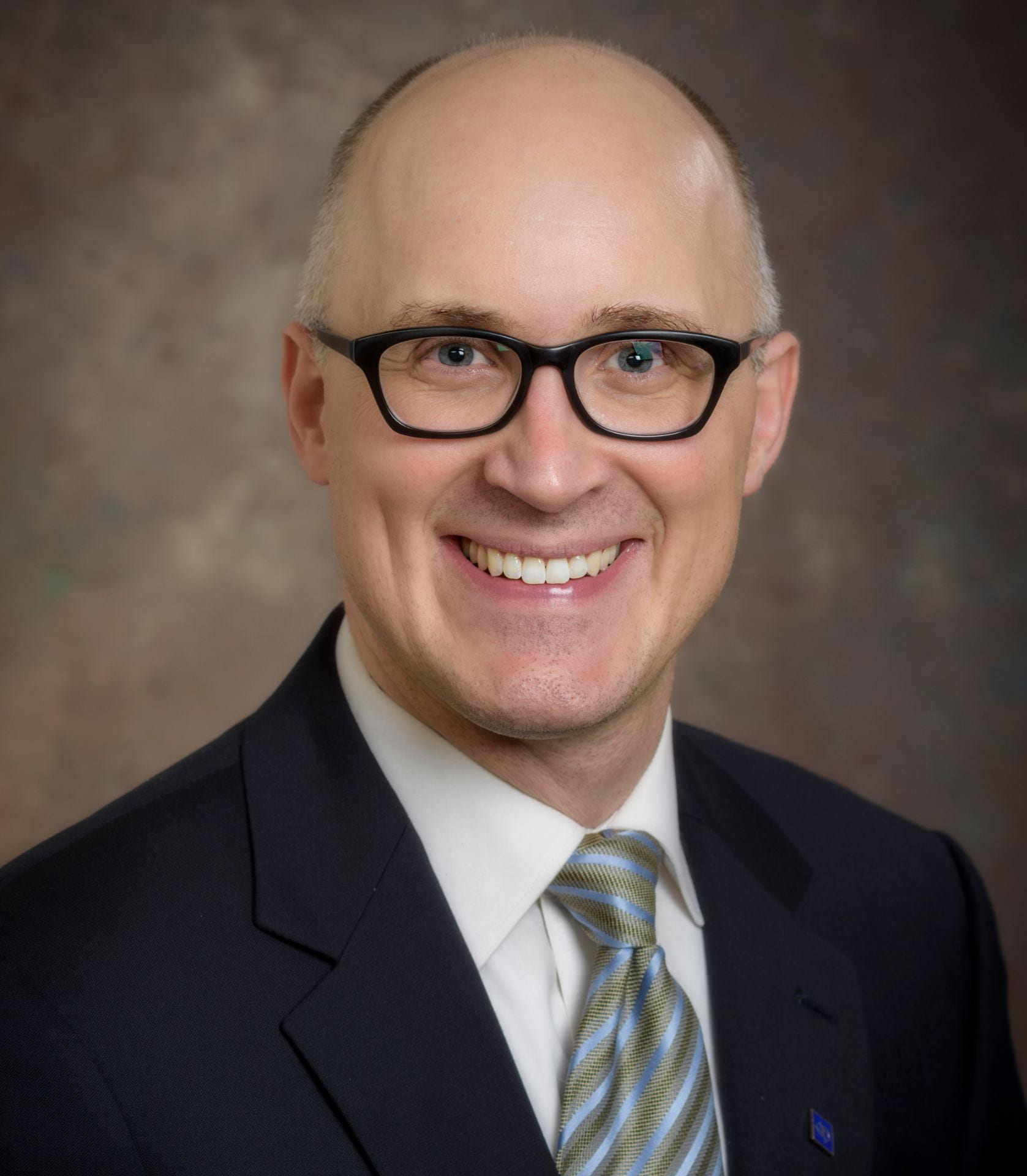 Professor & Department of Chemical & Biomolecular Engineering Chair
Professor & Department of Chemical & Biomolecular Engineering Chair
Office: 237A Colburn Laboratory (CLB)
Phone: (302) 831-0102
Email: furst@udel.edu
Furst Faculty Page
Research Interests:
Colloid and polymer physics, microrheology, active and non-linear microrheology, controlled delivery of therapeutics, cell biophysics, complex fluid structure and rheology, particulate gels, directed self-assembly.
CHRISTOPHER J. KLOXIN
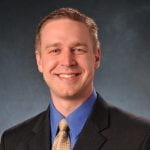 Joint Professor, Chemical & Biomolecular Engineering
Joint Professor, Chemical & Biomolecular Engineering
Associate Professor of Materials Science & Engineering
Office: 207 Colburn Laboratory (CLB)
Phone: (302) 831-8670
Email: cjk@udel.edu
Kloxin Faculty Page
Research Interests:
Our group is interested in several polymer-based research areas, including (i) stimuli-responsive materials, (ii) novel photopolymerization and photocoupling reactions for surface engineering and photolithography, (iii) DNA recognition and assembly using ‘click’ nucleic acids, and (iv) utilizing the coiled-coil motif to guide biomolecular self-assembly. Our general research approach is to design and synthesize materials from the monomer up to precisely tune the macromolecular architecture. We then utilize an array of characterization techniques, such as rheometry, scattering, and microscopy, to better understand the relationship between the underlying microscopic structure and the macroscopic property. This latter process informs the direction for monomer design and synthesis to optimize the desired property for a specific application.
ABRAHAM M. LENHOFF
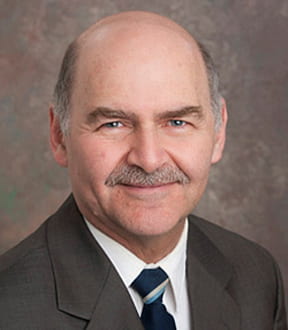 Allan P. Colburn Professor of Chemical Engineering
Allan P. Colburn Professor of Chemical Engineering
Office: 229 Colburn Laboratory (CLB)
Phone: (302) 831-8989
Email: lenhoff@udel.edu
Lenhoff Faculty Page
Research Interests:
The main goal of our research is to analyze, control and exploit molecular interactions involving proteins and colloidal particles. The motivation is initially to obtain improved quantitative insights into existing processes, leading to more effective methods for designing and using them, but an auxiliary objective is to develop new products and operations. These themes bring together a diverse collection of research activities, discussed below, involving theoretical and experimental work dealing with both the fundamentals — transport, kinetic and thermodynamic phenomena — and their interaction in the process environment. The path from molecular structure through continuum properties to process design represents the central paradigm in modern chemical engineering, but it has been applied much less extensively to species such as proteins than to small molecules; such processes as protein separations still depend very heavily on empirical methods for design and optimization.
YUN LIU
 Material Physicist in the SANS Group of NCNR
Material Physicist in the SANS Group of NCNR
NIST Center for Neutron Research
Office: E127, 100 Bureau Drive, Gaithersburg, MD 20899
Phone: (301) 975-6235
Email: yun.liu@nist.gov
Liu Faculty Page
Research Interests:
Structure and dynamics of colloidal systems, such as nucleation/clusterization in colloidal and biological molecular assembly systems, ion/counterion association in polyelectrolyte solution, and colloidal interactions. Interaction of small molecules on the surface or porous media, such as hydrogen storage, green-house gas capture, molecular recognition based on surface selection, molecular sieving, small molecule dynamics on functionalized surface. Water structure and dynamics in nano-porous systems, such as fuel cell membranes.
RAUL F. LOBO
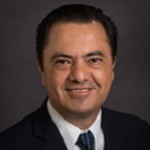 Claire D. LeClaire Professor of Chemical Engineering
Claire D. LeClaire Professor of Chemical Engineering
Director of the Center for Catalytic Science & Technology
Office: 331 Colburn Laboratory (CLB)
Phone: (302) 831-1261
Email: lobo@udel.edu
Lobo Faculty Page
Research Interests:
Microporous catalysts for C1 chemistry, structural characterization of catalysts at atomic and mesoscopic lengthscales, application of neutron diffraction to adsorption and catalysis, conversion of biomass to fuels and chemicals.
EDWARD R. LYMAN
 Associate Professor, Department of Physics & Astronomy
Associate Professor, Department of Physics & Astronomy
Office: 258 Sharp Laboratory (SHL)
Phone: (302) 831-3519
Email: elyman@udel.edu
Lyman Faculty Page
Research Interests:
Computational biological physics. Algorithm architectures for biomolecular simulation. Membrane biophysics.
PARAMITA MONDAL
 Associate Professor, Department of Civil & Environmental Engineering
Associate Professor, Department of Civil & Environmental Engineering
Office: 360A DuPont Hall (DUP)
Phone: (302) 831-4559
Email: mondal@udel.edu
Mondal Faculty Page
Research Interests:
The development of the processing-property-performance relation of cement-based construction materials, and the design of new materials through the application of multi-scale characterization, nanotechnology and biomimicry.
DARRIN J. POCHAN
 Professor & Department of Materials Science & Engineering Chair
Professor & Department of Materials Science & Engineering Chair
Office: 201C DuPont Hall (DUP)
Phone: (302) 831-3569
Email: pochan@udel.edu
Pochan Faculty Page
Research Interests:
Polymer physics; nanocomposites; biopolymers, hydrogels, responsive materials; one, two, and three dimensional superstructured materials based on polymeric manoparticles.
CHRISTOPHER J. ROBERTS
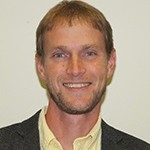 Professor of Chemical & Biomolecular Engineering
Professor of Chemical & Biomolecular Engineering
Director, Center for Biomanufacturing Science & Technology
Associate Institute Director, National Institute for Innovation in Manufacturing of Biopharmaceuticals
Office: 501 Biopharmaceutical Innovation Center (BPI)
Phone: (302) 831-0838
Email: cjr@udel.edu
Roberts Faculty Page
Research Interests:
Maximizing and controlling protein stability is a ubiquitous problem in biotechnology applications from protein expression to biopharmaceutical production. Marginally stable or unstable proteins lead to loss of catalytic enzymatic activity, loss of protein drug potency, and possibly to immunogenic responses in patients. Our laboratory focuses on problems ranging from thermodynamics of protein folding, to structural and mechanistic features of protein unfolding and aggregation, to protein-protein interactions and aggregate phase behavior, to molecular modeling of protein-protein interactions and protein folding. We combine experiment, theory, and engineering models to develop fundamental yet practical approaches to predicting and interpreting the behavior of a variety of commercial and model protein systems.
SUSANA C. M. TEIXEIRA
 Research Associate Professor
Research Associate Professor
Office: NIST Center for Neutron Research (Gaithersburg, MD), E103
Phone: 301-975-4404
Email: susanat@udel.edu; susana.marujoteixeira@nist.gov
Teixeira Research Page
Neutron-Condensed Matter Science Group
Research Interests:
Increasingly complex engineering systems are required for energy, biomedical, infrastructure and space exploration, using biomaterials that perform in aggressive natural and industrial settings. My research focuses on understanding the molecular basis for biopolymer properties under such environments, such as sub-freezing temperatures and high-pressure (HP), using small angle neutron scattering (SANS) as a core measurement technique. To reach this goal, I am interested in enabling new capabilities to allow for in-situ measurements under a variety of sample environments, taking advantage of the unique characteristics of neutron research techniques. Examples of applications include the analyses of effects of lyophilization, freezing, salt type and concentrations used both in Pharma and Food processing and engineering.

